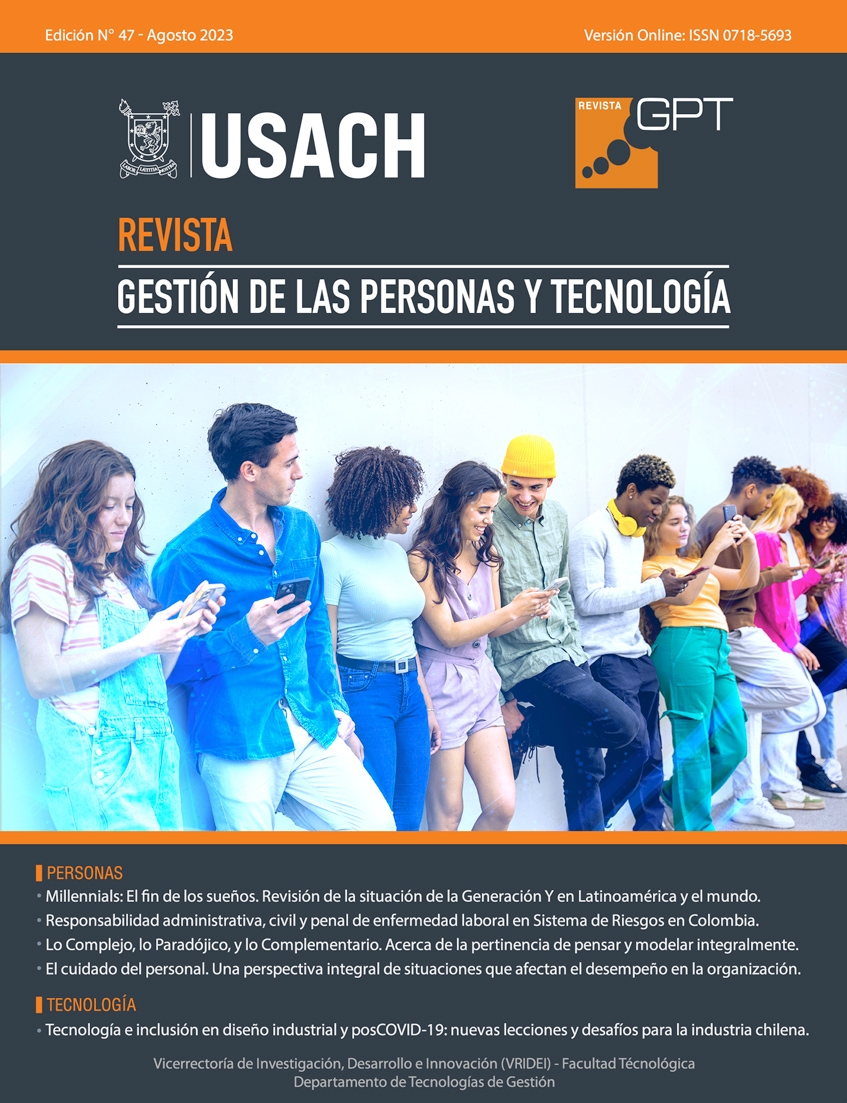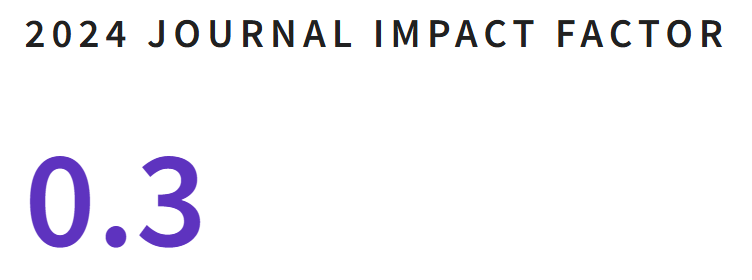Millennials: The end of Dreams.
A review about Gen Y at work in Latin America and the world
DOI:
https://doi.org/10.35588/vn3rtt81Keywords:
Generation Y, human resources, labor force, millennialsAbstract
For 20 years, the “Generation Y” characteristics have been discussed in the academic and professional fields. Currently, these young people are between 20 and 35 years old, with which the opportunity is present to take stock of the research carried out in the last decade, and the reality of the development of this generation. In this sense, it is a testing exercise. It allows an argumentative transit to understand how “Generation Y” adapted to the characteristics of the educational and labour systems, as well as to what extent it had to adapt to them. It is also interesting to observe the differences between generations in developed and developing countries. Finally, it is proposed to address with quantitative and qualitative data the characteristics of this generation, their way of thinking about the world, and their experiences, in the context of globalization.
Downloads
References
Cuesta, E. M. et all. (2008) El impacto de la Generación Millennial en el mundo laboral: un estudio exploratorio. Nova Tesis, n° 10, ARTRA, Buenos Aires, pp. 173-183.
Cuesta, E. M. et all. (2009) La nueva “Generación Y” el trabajo. Barbarói, n°31, agosto, Santa Cruz do Sul. Disponible en: https://online.unisc.br/seer/index.php/barbaroi/article/viewFile/479/908
Cuesta, E. M. (2011). El impacto de la Generación Y en las organizaciones. Claves y desafíos de una nueva época. Buenos Aires: EDICON.
Cuesta, E. M. (2014). La Generación Y en Latinoamérica. Algunos aportes conceptuales y empíricos. Revista Electrónica Gestión de las Personas y la Tecnología. 7 (19). Disponible en: http://www.revistas.usach.cl/ojs/index.php/revistagpt/article/view/1472
Deloitte (2020). The Deloitte Global Millennial Survey. Encuesta a la generación millennial 2020. Deloitte. Disponible en: https://www2.deloitte.com/ar/es/pages/capital-humano/articles/encuesta-millennial-2020.html / (Consultada 10/09/2021)
Ferreiro, R. (2016). El reto de la educación del siglo XXI: la generación N. Apertura, 6 (5). Disponible en: http://www.uacm.kirj.redalyc.redalyc.org/articulo.oa?id=68800506> (Consultada 10/09/2021)
González-Pérez, M. A. y Mercado Percia, H. (2021). Gerenciando la Generación Y o el reto “millennials”, AD-minister. Disponible en: http://www.redalyc.org/articulo.oa?id=322331212001 (Consultada 10/09/2021)
Howe, N. y Strauss, W. (2000). Millennials” Rising. The Next Great Generation. New York: Vintage Books.
Manpower Inc. (2010). La interacción generacional en el trabajo. R, Manpower. Disponible en: http://www.manpower.com.mx/ (Consultada 10/09/2021)
Lago, J. L. (2013). Reflexiones sobre la gestión intergeneracional de los recursos humanos en la organización. Serie materiales de enseñanza. Revista Faces, 6 (5). Disponible en: http://nulan.mdp.edu.ar/1902/1/FACES_n40-41_95-110.pdf (Consultada 10/09/2021)
Maison, P. (2013). El trabajo en la posmodernidad. Reflexiones y propuestas sobre las relaciones humanas en tiempo de la Generación Y. Buenos Aires: Editorial Granica.
Molinari, P. (2012). Turbulencia generacional. Buenos Aires: Temas Grupo Editorial.
Novella, R., Repetto, A., Robino, C. y Rucci, G. (2018). Millennials en América Latina y el Caribe: ¿trabajar o estudiar?. Banco Interamericano de Desarrollo, Noviembre. Disponible en: https://publications.iadb.org/es/millennials-en-america-latina-y-el-caribe-trabajar-o-estudiar (Consultada 10/09/2021)
Organización Internacional del Trabajo (2015). Juventud y pymes en América Latina y el Caribe. En Organización Internacional del Trabajo. Disponible en: www.ilo.org/wcmsp5/groups/public/---americas/---ro-lima/documents/publication/wcms_421759.pdf (Consultada 10/09/2021)
Petersen, A. H. (2020). Can't Even: How Millennials Became the Burnout Generation. New York: Mariner books.
Princeton One (2017). Understanding Generation Y, What you need to know about the “millennials”, pp. 2-4. Disponible en: http://www.princetonone.com/news/PrincetonOne%20White%20Paper2.pdf (Consultada 10/09/2021)
Real Academia Española (2017). Diccionario de la lengua española. 22nd ed., Madrid.
Simón, C. y Allard, G. (2007). Generación “Y” y mercado laboral: Modelo de gestión de Recursos Humanos para los jóvenes profesionales. España: Instituto de Empresa Business School.










